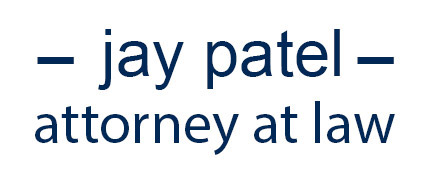Benefits of Hiring a Lawyer for a State Misdemeanor Charge
In Florida, crimes can either be classified as misdemeanors or felonies. If you think a misdemeanor charge is of little to no consequence, you are very mistaken. While felonies are considered more severe, misdemeanor charges can be serious.
If you are charged with either a misdemeanor or a felony, you need an attorney by your side immediately.
• Why are some crimes designated as felonies and others as misdemeanors?
• What are the penalties in Florida that courts may impose on these types of crimes?
• What are your rights if charged with either type of crime?
Like many states, Florida distinguishes misdemeanors from felonies based on maximum fines and jail time. Misdemeanors are less serious crimes that could result in spending up to a year in jail.
Crimes that are more serious and can result in more than a year spent in jail, up to your natural lifetime or even for the death penalty, are classified as felonies.
Misdemeanors and How They are Classified
Misdemeanors have two categories, first-degree and second-degree. Below we explain the differences of each along with the possible sentence.
- First-degree misdemeanors are punishable, if convicted, with up to one year in jail, twelve months’ probation, or a combination of jail and probation, and a fine up to $1,000. Examples include violating a restraining order, cyberstalking, or battery.
- Second-degree misdemeanors are punishable, if convicted, with up to sixty days in jail, six-month probation, or a combination of jail and probation, and a fine up to $500. Examples include petit theft (less than $100), disorderly intoxication, or assault.
- Repeat misdemeanors: For those who charged with multiple misdemeanors, there is the possibility of enhanced penalties. Anyone convicted of a fourth or subsequent misdemeanor are habitual offenders. They face a minimum of six months in jail or residential treatment.
- Victims: Victims can often be overlooked in a serious crime. Committing specific crimes against vulnerable people (children or the elderly), or protected professionals, can land a misdemeanor offender with a felony charge. Assault or battery against a police officer, or emergency health care provider can push a misdemeanor charge to a felony charge.
There is a statute of limitations to bringing misdemeanor charges. That period begins when the crime is committed. First-degree misdemeanors have a two-year statute of limitations, and second-degree misdemeanors have one year.
The following misdemeanors in Florida include, but a not limited to:
- Domestic Violence
- Criminal Mischief
- Trespassing
- Shoplifting
- Petit Theft
- Battery
- Disorderly Conduct
- Driving With a Suspended License
- Driving Under the Influence (DUI)
- Possession of less than 20 grams of marijuana
- Possession of alcohol by a minor
It is essential to understand that if you are charged with a misdemeanor, you need the help of an attorney for misdemeanors as soon as possible. Be cautious if you try to beat your charge on your own. There are too many legalities you will not be familiar with, and you need an experienced attorney to guide you through to success.
Misdemeanor Sentencing in Florida
When sentencing misdemeanors, judges have broad discretion but sanctions need to be reasonably related to the charge. Jail time is often reserved for repeat offenders, and often first-time offenders will receive a lesser sentence. The Court will consider all aspects of the crime, including damages caused or injuries to victims, as well as the offender’s past criminal history. Often, addiction or mental health issues present problems that can be at the root of the problem.
Jail Sentences: Judges can impose any jail term up to the maximum allowed by law. They can also order a jail followed by probation or allow a defendant to serve jail time on weekends during probation. Some charges require a minimum mandatory jail sentence.
Right to Bear Arms: Certain dispositions in Domestic Violence cases can lead to massive infringement on your 2ndAmendment right. Not only will you not be able to own or possess a firearm during probation, but you may be subject to limitations on owning, purchasing, and possessing firearms well after the case is over. Federal law changes in this area so it is wise to speak to an attorney if charged with a domestic crime.
License Suspensions: Certain Driving and Drug offenses carry driver’s license suspensions. Additionally, failure to pay court costs causes suspensions as well. For many, failure to pay court costs can lead to a suspension black hole. Fortunately, the Courts have opened programs such as Project Green Light and other avenues to assist those that have suspensions to get back behind the wheel.
Misdemeanor Probation: Defendants can serve all or part of their sentence supervised in the community. This type of supervision can be six months to one year depending on the type of crime.
Problem-Solving Courts: A defendant may qualify for such a court if addiction, mental health, or military service-related issues contributed to their crime.
You Need an Experienced Lawyer for Misdemeanors
There are so many aspects to the law in Florida, it is never a good idea to go it alone. Even for a misdemeanor, partner with someone who knows Florida law inside and out. Mistakes are made all the time by prosecutors, lawyers, and judges. Let an experienced attorney take control of your legalities.
This is why it is of the utmost importance to have a good attorney for misdemeanors working for you. A misdemeanor is a criminal offense and there can be severe legal consequences to being convicted for these crimes long after the case is over.
Not all lawyers for misdemeanors are alike. You need a lawyer who knows the law concerning DUI, sex crime abuse, domestic violence, and juvenile defense. Only an attorney with experience and expertise in these areas can help you navigate the criminal justice system and obtain the best possible outcome for your circumstances. Contact Jay Patel today and find out more.
